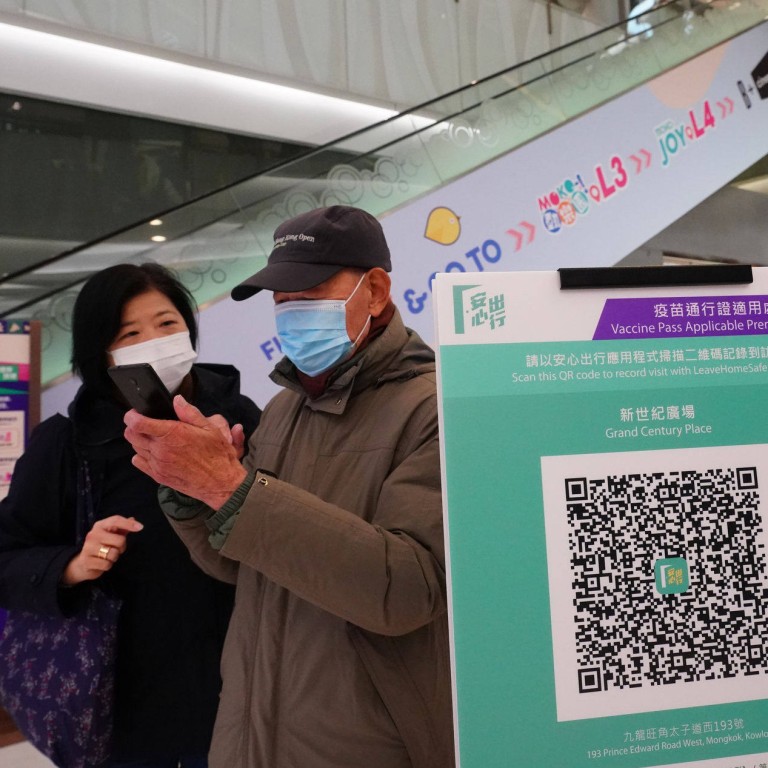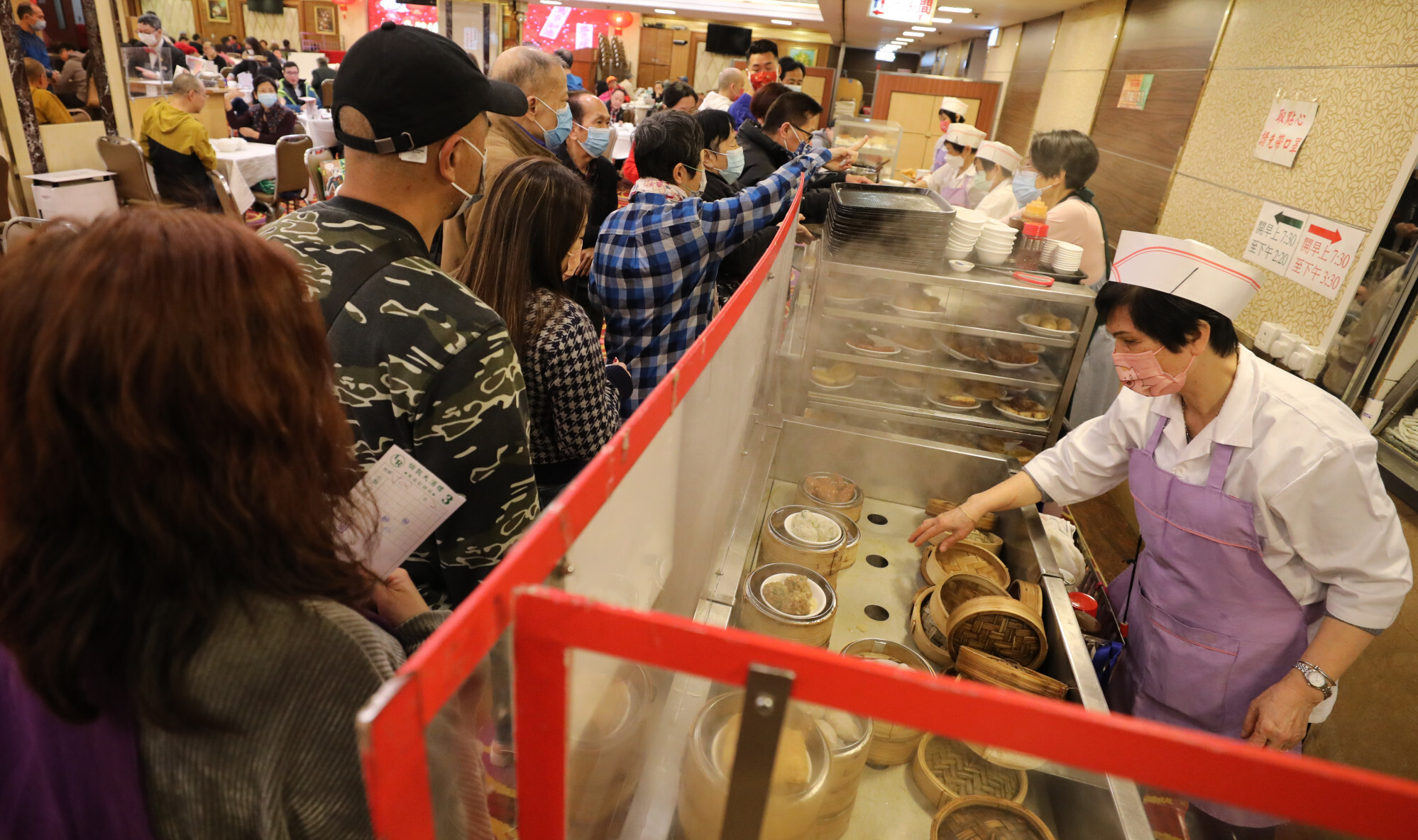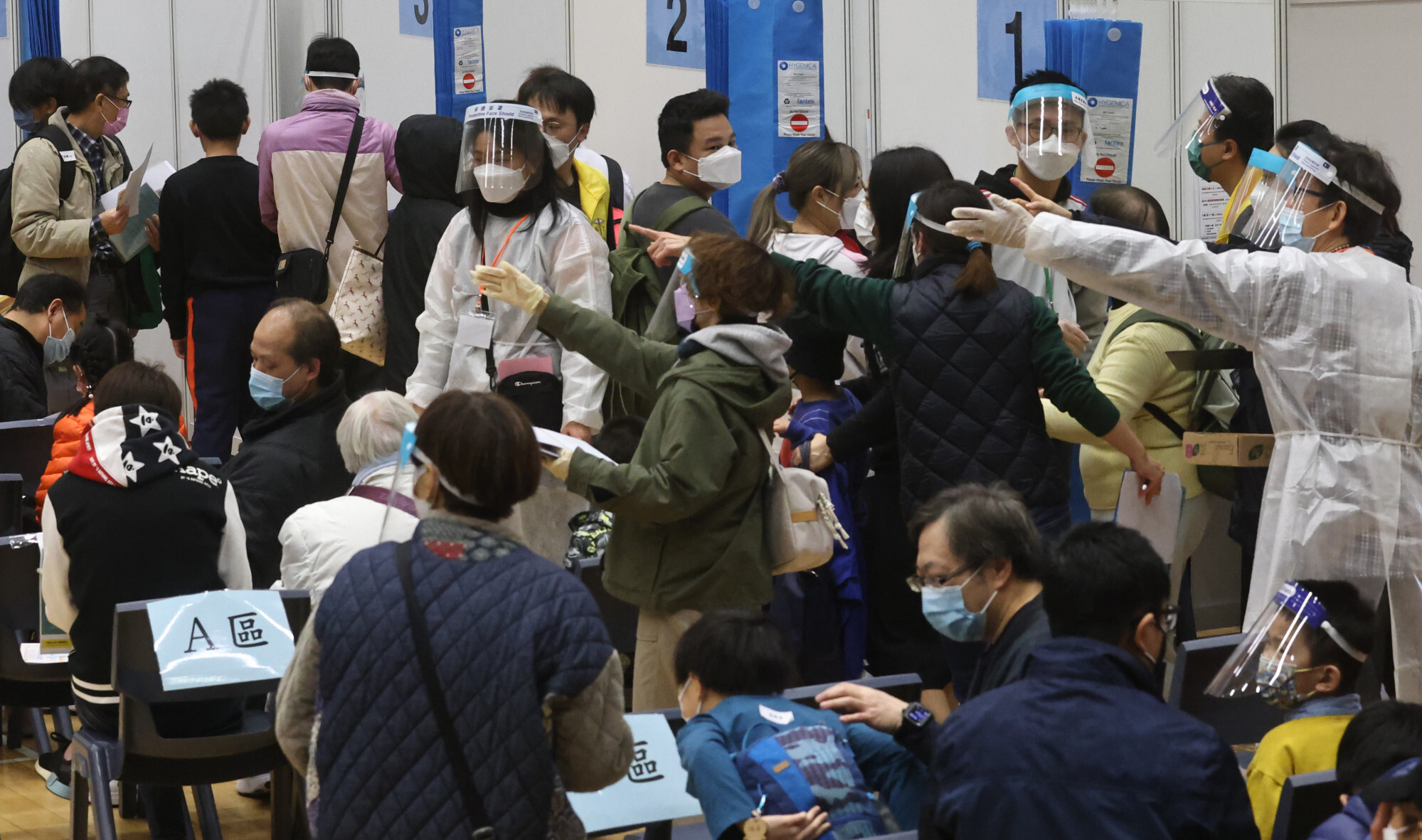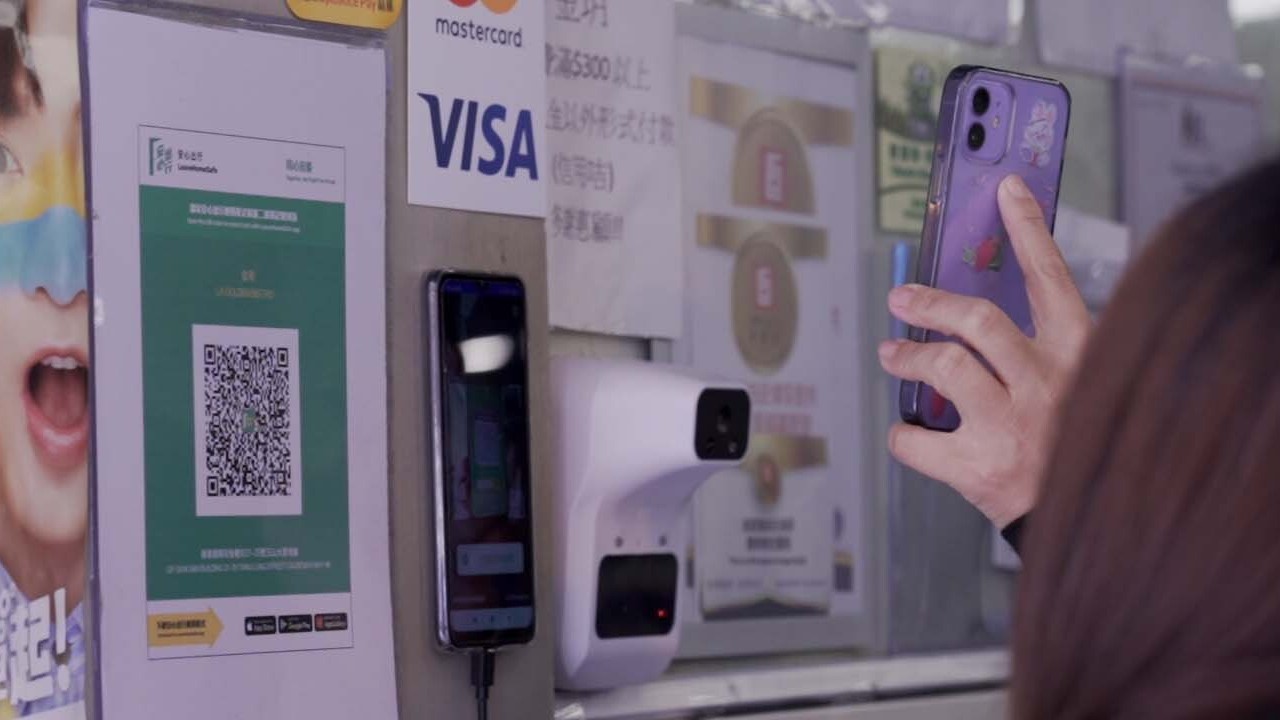
Angry but holding out: Hong Kong’s vaccine pass restrictions hit unvaccinated hard, but some still refuse Covid-19 jabs
- They cannot eat out or go shopping, but Hongkongers against vaccination say they are not budging
- Expert says those not jabbed face risks and more must be done to persuade them, especially elderly residents
Mong Kok resident Agnes Wong*, 73, felt it right away when Hong Kong’s controversial vaccine pass scheme took effect on Thursday, barring unvaccinated people from a wide range of premises across the city.
The divorcee and cancer survivor, who lives alone, was angry that she could no longer enjoy morning yum cha meals of dim sum with her friends in restaurants or go shopping in the supermarket.
“I feel very offended by the way they are forcing Hong Kong people to get vaccinated. They even threaten that people will pay a heavy price for not getting vaccinated. This has put me off greatly,” she said.

She explained that she did not trust the government and did not like the way its Covid-19 pandemic policies had been changing.
“One time this, another time that. How can they convince people to trust them?” she asked.
She said she would now shop online and get used to the inconvenience, “even if one day the government doesn’t allow me to use public transport”.
Wong is among a minority of Hong Kong residents who are strongly opposed to being vaccinated and have resisted efforts by authorities to get their jabs.
As of Saturday, the city’s inoculation rate stood at 88.7 per cent for those who had one dose of vaccine, and 77 per cent for those who had two shots. The rate for those aged 70 to 79 with one jab has climbed to 76.2 per cent, but for those aged 80 and above, it was still only about 47.85 per cent.
What is Hong Kong’s Covid-19 vaccine pass scheme and how does it work?
The vaccine pass, which is aimed at persuading those still unvaccinated to get their jabs, was introduced amid the city’s explosion of Covid-19 cases in the ongoing fifth wave of infections.
But several unvaccinated people, including teenagers and those in their 20s and 30s, told the Post they still had no plans to get their jabs.
Vaccine pass ‘already hurting business at struggling Hong Kong restaurants’
A Facebook group with more than 25,000 members against vaccination featured ongoing discussions on ways to get around the vaccine pass, with suggestions to obtain medical certificates or organise group purchases of food and supplies from smaller stores. The group also shared details about the possible side effects of vaccination.
Infectious disease expert Leung Chi-chiu admitted the vaccine pass scheme was controversial and it was inevitable that some would be upset or offended by it.
But he cautioned that those who refused to get their jabs were taking a risk, as the highly transmissible Omicron variant of the coronavirus could cause some people to become seriously ill, especially the unvaccinated.
Health authorities announced 26,026 cases on Sunday, taking the city’s number of infections since the fifth wave began in late December to 158,683. The city also recorded its deadliest day of the pandemic so far, with 83 related fatalities over the past 24 hours, taking the total to 727. Of those who died up to February 20, 95 were aged above 60 and 52 patients were unvaccinated or had only received one dose. Five had received two doses.
But none of that has convinced taxi driver Tom Ku Ching-tung, 37, to get vaccinated. He said he was enraged by the government’s “coercive actions” and changing pandemic measures, and boycotting the vaccine drive was a way to express his resentment.
“It promised to relax restrictions for those who received their shots, but now we see that vaccinated people are still subject to various stringent measures,” he said. “Vaccinated or not, you still have a chance of getting infected. Why should I bother?”
Ku said he would switch to shopping online to get around the vaccine pass. “I’d rather live with discomfort than be forced to get jabbed,” he said.
Excuses are running out for those Hong Kong citizens still to be vaccinated
Vocational Training Council student Ryan Chan, 17, said he would avoid getting vaccinated for as long as he could, even though his school had already said that unvaccinated students could not attend classes.
Like the others, he did not like feeling he was being forced to get vaccinated. “I will persist until the very last minute before getting jabbed,” he said.
As for being barred from going to restaurants and shopping centres, he said he would rely on his parents, in their 40s, for food and necessities, or order takeaway and deliveries.

Especially concerned about older people, he said: “The unvaccinated elderly have a high risk of infection and serious symptoms, but the government hasn’t done much to address their misconceptions.
“It needs to do serious soul-searching about why elderly people are so resistant to vaccination.”
Unvaccinated Bobo Cheung*, in her 30s and director of a financial institution in Central, said she was working remotely, so she stayed home and shopped online.
Cheung said she was afraid of any possible side effects after previous bad experiences had led to swelling from using the wrong type of face cream and serious breathing problems in polluted environments.
Although she had consulted a doctor, he declined to tell her conclusively if she ought to be vaccinated.
“I did not dare test my immune system with the vaccines,” she said.
Then, on Thursday, she tested preliminary-positive for Covid-19.
“Now I don’t have to get vaccinated,” she said, adding that she had only suffered from mild symptoms so far.
*Names changed at interviewees’ request.
Additional reporting by Denise Tsang


